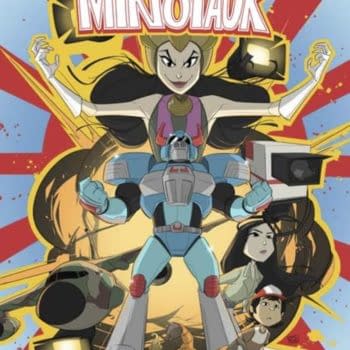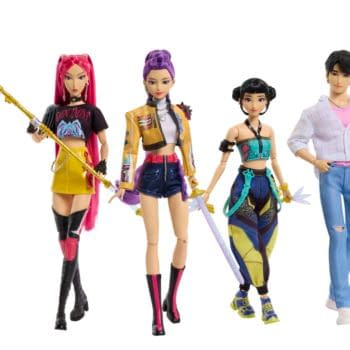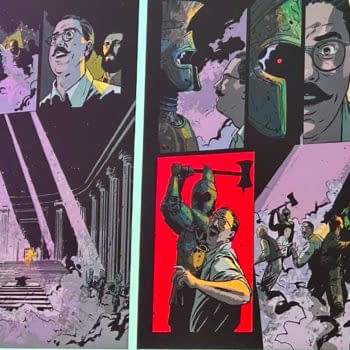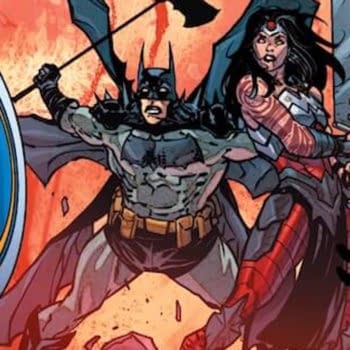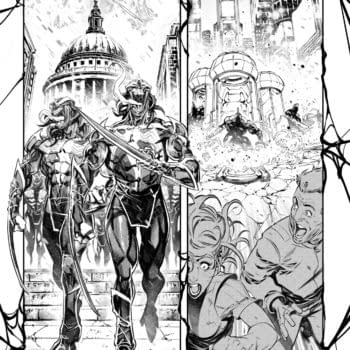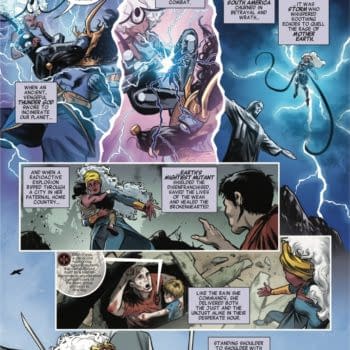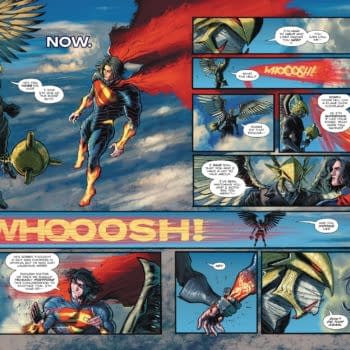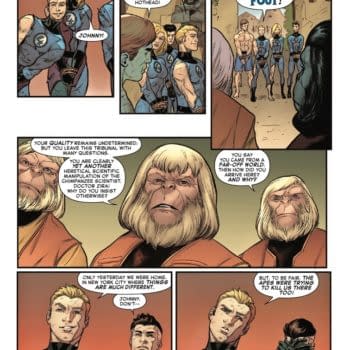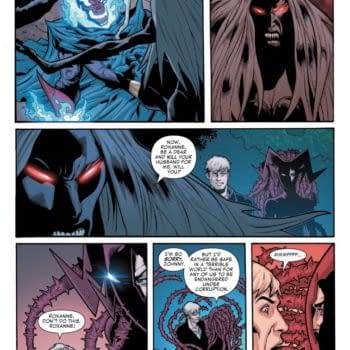Posted in: Comics | Tagged: amy reeder, Comics, image, kickstarter, NPR, rocket girl
Kickstarter And Image Comics – What's The Deal?
NPR this weekend ran an article focusing on women comic book creators, that touched on the role of Kickstarter in finding audiences for certain books that might not have found them in through traditional means. And quotes Amy Reeder, co-creator and artist on Image series Rocket Girl, saying,
Creators who work for the top publishers occasionally crowdfund their own projects — like Reeder and Montclare, with the Image Comics-published Rocket Girl. Their Kickstarter campaign raised $38,037, which covered some living expenses and production costs before Image's royalty checks began arriving. But their campaign didn't go over well with Image, Reeder says.
"Image doesn't necessarily appreciate being combined with Kickstarter," she says. "They have a very strong model of supporting comics retailers, so I think they were worried about the first issue being [available exclusively] through Kickstarter."
A few concerned creators got in touch. But it's worth noting that Rocket Girl isn't the only Image series that has been funded from crowdfunding site Kickstarter, and many continue to do so. It's one of a number of options that creators can choose to develop a property and Image doesn't seem to be getting in their way.
It's more likely that, as Reeder alludes to, that Image Comics advised against making exclusive product available to fans, that retailers wouldn't later be able to order for their stores. Image Comics has, of late, been visiblly more committed to supporting their sales in comic book stores, and this may well be the result of this.
Image Comics does offer advances for certain, select projects, but it is very much not the rule. Creators are expected to create the comic book, Image will publish it for a fee taken out of revenue, and the creators recieve the remainder, after the book has been published and the money has come in from comic book stores to Diamond. That's how it was with me and my brief Image Comic title Chase Variant – and how it is with most people. But some creators need help in bridging the gap, which is where Kickstarter can come in.
Carbon Grey needed a Kickstarter to fund the production of their second series from Image Comics. Top Cow Studios, that have published through Kickstarter, funded the return of Cyberforce. Rob Liefeld's Brigade will be published at Image Comics after being funded through Kickstarter.

II I don't think being a Kickstarter project has any bearing on sales thresholds. In the case of SOTD, almost all of the funds we got went into the budget of the short film – which ended up costing more than what we got from Kickstarter. So financially speaking, the Kickstarter didn't pay for the ongoing series. I had to get financial support from other means. But Kickstarter allowed me to start the comic book and get far enough down the road to pitch it to Image. This allowed me to take the concept from its initial plan as a one-shot to becoming an ongoing series.
Ryan Brown's online comic God Hates Astronauts had a Kickstarter-funded print collection, that Image reprinted for the direct market and then picked up an ongoing series.
And at Image Expo, Image annunced they were to publish Steve Orlando's Virgil, a graphic novel he funded with Kickstarter.
Though probably best not mention Varney The Vampire.
The NPR article also quotes Maggie Thompson who reminds us all that "crowdfunding is little different from how fanzines used to be paid for: Readers taped change to handwritten requests and mailed them off to P.O. boxes."
I've regarded Kickstarter as a very effective way to reach out to people to make pre-orders for your new product, readers and retailers alike, and that it seems is when it has been most successful. And it has funded a number of projects that publishers, such as IDW, Image and Dark Horse have been much happier to take on – once they can see the finished product – or see that project's very large and committed fanbase represented in dollar form, that may be replicated in comic store sales.
But then again, hasn't it always been the way?







